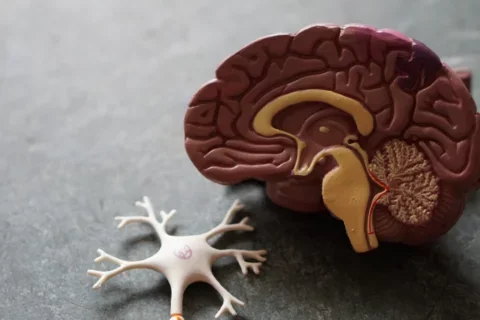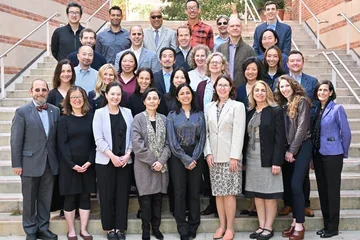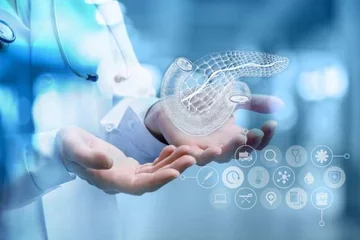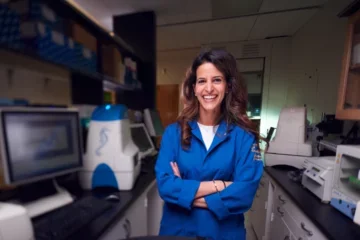What Is Neurobiology?
A UCLA Doctor Explains

A Day in the Life of Dr. Paul Micevych, UCLA Neuroendocrinologist and Chair of the Neurobiology Department
Paul E. Micevych, PhD has a passion for research.
While he was in college, a friend's father invited Dr. Micevych to visit his neurophysiology lab. "He got me hooked," Dr. Micevych says. "There's a type of person who gets infected by the research bug. Once that happens, it's very difficult to do anything else."
What Is Neurobiology?

Dr. Micevych says neurobiology is a broad field. "It's the biology of nerve cells and glial cells that make up the brain — how they fit together and make circuits, and how those circuits process information and regulate behavior, endocrine function, emotions, breathing, etc."
To better understand neural circuits, neurobiologists at UCLA use various techniques, from classical biochemical and immunochemical techniques to genetic and optogenetic techniques, to study cells in living animals."This gives us a better understanding than ever about how individual cells function within circuits and how this activity translates into a physiological or behavioral function," says Dr. Micevych.
Reproductive Neuroendocrinology
Dr. Micevych's specialized reproductive neuroendocrinology studies focus on interactions between the brain and the ovaries and how those interactions regulate ovulation and reproductive behavior. He's isolated two hormones, estradiol and progesterone, that appear to play a key role in human health and reproductive health.
"We've learned that estrogen and progesterone have rampant transmitter-like effects that influence a number of different behaviors, not just reproduction. We've looked at the ability of these hormones to regulate pain. My colleagues have looked at cognition in the hippocampus and cortex. And we've learned that progesterone and estrogen have neuroprotective effects."
Dr. Micevych says these findings could help extend women's reproductive lifespans and potentially lead to new hormone-based treatments for victims of stroke and other brain injuries.
A Typical Day for a Neurobiologist
As a distinguished professor and department chair, Dr. Micevych doesn't get to spend much hands-on time in his lab, but he devotes time each day to reviewing and understanding data generated by his postdoctoral fellows.
"That is the most exciting and rewarding part of my day — thinking about what the data are telling us, taking experimental results we didn't expect and trying to figure out what it was we didn't understand when we planned the experiment, and then planning new experiments that will clarify how a particular cell or circuit is functioning."
Neurobiologists in Dr. Micevych's lab work with both live animals and cultured brain cells. "We try to tease out how estradiol and progesterone regulate cell signaling in vitro. Then we use that information, in vivo, to see how the cells work in the whole animal. If we see a different response than predicted, what is it that has modified the cell's behavior? It's a continuous circle of taking things apart, putting them in a dish, using that information in the whole animal, and back again. In the end, we have an accurate idea of how not only cells, but entire circuits, function to regulate physiology and behavior."
Makings of a Neurobiologist
Being a good neurobiologist requires curiosity and a love of the brain, says Dr. Micevych. "It's the least understood and most exciting part of the universe, and we're only just scratching the surface. Two-and-a-half pounds of protoplasm allowed Shakespeare to write sonnets and allows Usain Bolt to run the 100-meter dash," he explains. "Both have the same cells, but somehow they function differently in different people to produce very different results."
Dr. Micevych adds that neurobiologists must also be comfortable having their most fundamental ideas shaken. For example, it was dogma for years that people are born with all the neurons they'll ever have. But we now know that the brain generates new neurons every day.



